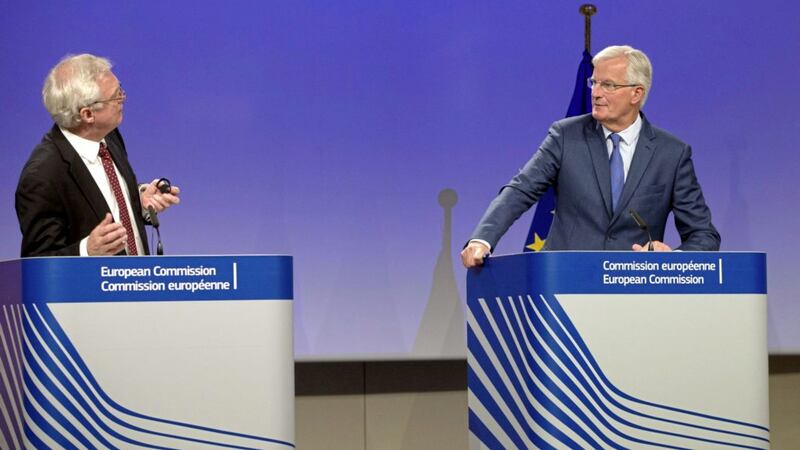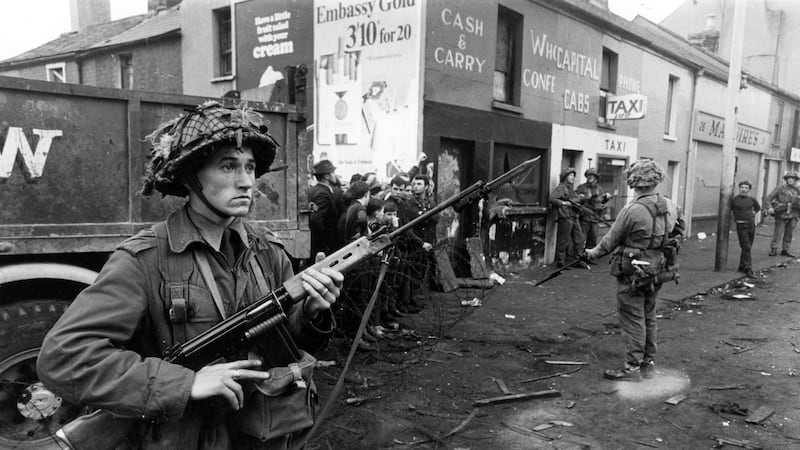TO avoid an economic border, Ireland should leave the European Union, but remain within the single market, on condition that Britain does the same. What do you think of that for a solution to impending economic partition?
I can see that you are not impressed. Presumably you believe that Britain is unlikely to remain within the single market and, in any case, you believe that Ireland should not leave the EU, no matter how hard the border becomes.
You have two good arguments there - or have you? You see, even before the Brexit referendum was planned, this column argued for UK - and Irish - withdrawal from the EU, while retaining membership of the single market.
That might mean, for example, leaving the EU and joining the European Economic Area (EEA) or the European Free Trade Association (EFTA).
Norway is a member of both organisations, which allow free trade without political union between member states.
The proposal was hugely unpopular at the time and it gained little support since - until this week, when there were two interesting developments.
The first was the Labour Party's policy change on Brexit. Jeremy Corbyn now argues that Britain should leave the EU, but retain membership of the single market during the transitional period, which should be "as short as possible, but as long as necessary".
If Ireland were also to leave the EU - known as Irexit - and retain membership of the single market, Labour's position might progress from transitional to permanent.
Of course, Mr Corbyn is not in power, but his policy switch means that there is now a Commons majority for the UK remaining within the single market.
So what was previously heresy from this column may soon sit comfortably in British, and indeed Irish, mainstream politics.
Already one Dublin commentator has described Mr Corbyn as advocating "our vital national interest".
The second development came from Dublin minister, Simon Coveney. He argued that when the north leaves the EU, it should remain within the EU customs union.
He did not go any further, but his objective would be hard to achieve unless the rest of the UK does the same.
So should Ireland opt for Irexit to avoid a hard border?
"No," you say, which suggests that you are a modern Irish patriot. For 800 years, patriotism here consisted mainly of dying for Irish freedom, which meant political independence from what we used to call foreign domination.
Today Irish patriotism just loves foreign domination, mainly by France and Germany in a political union with 27 other countries.
That union is becoming a single giant state, governed by an unelected bureaucracy.
It has its own flag, currency and national anthem - oh, and its own bank. That's the European Central Bank, which broke the Irish economy by insisting that Ireland should carry the losses borne by reckless EU bondholders.
Soon the EU will have its own army and, just as in John Redmond's days, it will be patriotic to fight alongside brave little Belgium and most other states as far over as the Russian border. Many of them have governments and politics with which you might not normally wish to be associated.
I am not sure how and when the definition of patriotism changed, but our recent 30-year war for Irish unity may have altered some people's minds. Patriotism, in Ireland at least, appears to be more a fashion than a principle.
As a result, Irish nationalists appear to reject political independence and economic unity in favour of political subservience and post-Brexit partition.
So where does that peculiar choice leave all the talk about Irish unity? Are the Dublin government and its people prepared to advance the cause of Irish economic unity?
Will they help the north for the first time since partition and go beyond mere rhetoric to take a stand against the border?
Sinn Féin says we should vote for its policies, if we "really want a united Ireland". So, in the interests of preventing a hard border, will it now demand that the Dublin government should leave the EU, while remaining in the single market?
All nationalist parties, north and south, might let us know which they believe is better for an all-island economy: an Ireland in the EEA or EFTA with no border, or an Ireland in the EU with a hard border?
Sinn Féin, the SDLP, Fianna Fáil and Fine Gael have long since abandoned an independent Ireland.
Now they have a unique opportunity to show how committed they are to a united Ireland. Their choice in the coming weeks will determine Ireland's destiny.









